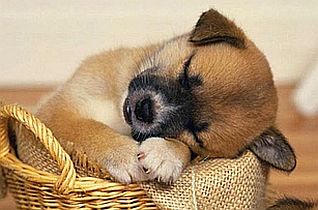
We call it “beauty sleep” in part because fatigue and stress show up on the face. Also sleeping is the time of day when the body does its detoxifying and repairing. It will surely come as no surprise to readers that lack of sufficient quality sleep leads to fatigue, irritability, and foggy thinking. It is less well known that sleep deprivation increases pain perception and is a contributor to many if not most chronic diseases. Everyone is different, but maybe there is something in this list that will help you rest better.
Why not just take a sleep drug like the commercials tell us to? As is the case with all pharmaceuticals, sleep medicines have side effects. It is just that in this case, we are messing with the brain. As an example, the side effects of the popular sleep aid Ambien® include: anxiety, depression, suicidal thoughts, memory loss, insomnia (!!!), addiction and many more. The meds on drug store shelves have their own issues. Most of the over-the-counter sleep aids and “PM” meds such as Advil® PM, Nyquil™ and many others contain ingredients known as “anticholinergics”. As noted in this informative article on the People’s Pharmacy’s great website, they are linked to dementia and other problems.
Behaviors that help and hurt sleep.
- Caffeine. Surely you have heard or just assumed that drinking caffeinated beverages (coffee, tea and colas) close to bedtime may keep you awake. You may not know that it can take 6 to 10 hours for the body to clear caffeine from the system. People who are especially caffeine-sensitive may be bothered for days. I find that a piece of rich dark chocolate birthday cake contains enough caffeine to mess with my sleep. The sugar and starch in the cake (besides being evil and fattening) can cause heartburn which makes it hard to sleep. Check other soda labels (e.g. Mountain Dew®) and medications (e.g. Excedrin®) for caffeine content.
- Bedtime. Experts agree that establishing a regular bedtime and routine for going to bed is supportive. The old saying goes, “Every hour of sleep before midnight is worth two after midnight.” This Time Magazine article disputes that exact cutoff but does say that our circadian rhythms will give us a better quality of sleep early vs late.
- Nighttime activities.
- Exercise. It is best not to do vigorous exercise closer than 1 hour before bed.
- Blue screens. Smart phones, laptops and TV’s are a relatively new challenge for humans. For most of human existence, natural blue light outdoors signaled that it was time to get up. Some devices have settings to reduce blue light and there are special eyeglasses that filter it out. The simplest and most reliable thing is to avoid using them 2 to 3 hours before bedtime. This Harvard article says “research shows that it [blue light at night] may contribute to the causation of cancer, diabetes, heart disease, and obesity.” One way it has an effect is to reduce the melatonin the person makes. (Read below about melatonin.)
- Sleep position. A study published in the Journal of Neuroscience found that “side sleeping was the most efficient way to cleanse the brain of waste.” (Logic says that should make you feel sharper the next day.) Chiropractor Andrew Shepherd says “Sleeping on your back offers a number of health benefits as well because it allows your head, neck and spine to rest in a neutral position and uses gravity to keep your body in even alignment over your spine. Sleeping on your stomach is the worst position for your health. It places an enormous amount of stress on your nervous system which can lead to health issues. It also places stress on vertebral joints and muscles, which over time will lead to early degeneration, osteoarthritis, reduced flexibility, pain and more.”
- Being overweight. Recent research shows that obesity interferes with sleep. It also is true that poor sleep leads to weight gain.
- The bedroom.
- Dark. The darker the better. If it is impossible to totally darken the room, an eye shade can help. (I get a kick out of bedroom scenes on TV and in movies where the actors are propped up on a big ole pile of neck wrecking pillows and the room is so bright you could read the newspaper.)
- Cool. A cool room also helps. (We are energy conscious at home and use the ceiling fan, but it is a great treat when I can crank the thermostat down to 68○for one night in a hotel.)
- Quiet. Speaking of hotels, if you have ever been in one near the ice machine and elevator and/or where the neighbors partied to all hours, you know that quiet is also important. An exception to that rule can be a pink noise It soothingly covers up environmental and partner noises. It differs from white noise which can sound similar to radio static and so some people find it irritating. The pink sounds are softer, and I find it more relaxing. The device we use has many options. (FYI, HBN is an Amazon affiliate, meaning we might get a few pennies literally from purchases at that link.)
Next week I’ll cover natural helps for sleep in Part II.










 October 15, 2020
October 15, 2020 